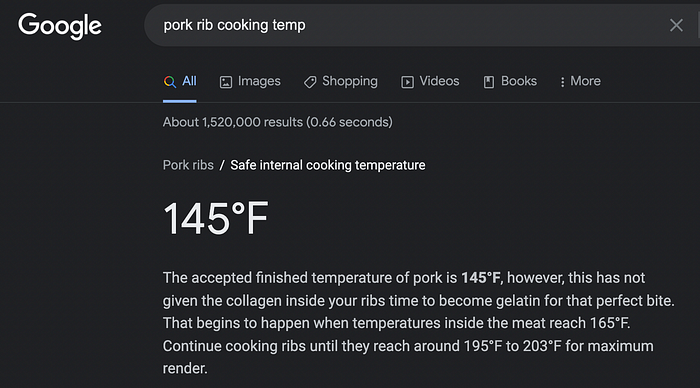5 Keyword Research Mistakes You Need to Avoid

Keyword research is one of the cornerstones of SEO success.
Unfortunately, keyword research is also one of the most misunderstood parts of SEO. I’ve heard this from bloggers who are learning SEO and people who have worked with SEO experts.
Bloggers say that keyword research is confusing. They don’t really understand what makes a certain keyword a good opportunity.
I’ve found that SEO tools can oversimplify keyword research. You can put a topic in the magic keyword generator and then sort the terms by the search volume and estimated difficulty to rank in the top 10 results.
Those numbers are helpful, but they’re not telling you the entire story.
If the KD and Volume from Ahrefs are the only numbers you’re paying attention to, you’re not doing keyword research. They’re good signals, but there’s much more to understand.
Here are 5 mistakes you need to avoid if SEO success is your goal.
Underestimating search volume
There’s some debate about whether you should pay attention to zero-volume keywords. My thought is that in most cases those shouldn’t be your top priority.
What about lower search volume keywords? Should you create content for keywords that get 20 or 50 searches per month?
In nearly every case, SEO tools are underestimating search volume.
First, it’s impossible for any SEO tool to accurately track how many people are typing a certain term in the Google search bar. It’s really just an educated guess, and it’s smart to underestimate rather than overestimate search volumes.
Next, there are a ton of different keywords that yield the same results.
For example, Ahrefs says “keyword research tool” gets ~2,400 searches per month. That’s a lot, but the actual search volume is even more.
Ahrefs also says “keyword research tools” gets ~1,300 searches per month.
And those 2 keywords give you very similar search results. If you’re ranking for “keyword research tool” you’re also likely ranking for “keyword research tools”. That means search volume is already closer to 3,700 per month.
That’s just the beginning.
This post from Zapier (zapier.com/blog/best-keyword-research-tool) is ranking for 1,000+ unique keywords.
They’re ranking for “seo keyword tools” “keyword research seo tools” “keyword research tool in seo” “keyword analysis tools” “keywords tools for seo” “keyword search tools” “seo keyword research tool” and many, many more variants.
Obviously that page is getting significantly more traffic than the original estimate of 2,400 searches per month.
You might ignore one keyword that has 40 searches per month, even though there are 100 other very similar phrases that your content will rank for.
There are plenty of keywords that don’t get 100s or 1,000s of searches every month.
Not every keyword will result in a ton of traffic.
But in general, the estimates are lower than the actual search volume.
Overestimating CTR
The next mistake is almost the opposite of the last mistake.
People usually make this mistake when they find high-volume, low-difficulty keywords. They look like a great opportunity, but don’t result in any real website traffic.
Math problems are a great example of this:

0 competition and 4,500 searches every month?
That’s a great opportunity!
The problem is, those are no-click searches. The Google calculator gives people the answer in the search results. There’s no need to click on any website.
There are plenty of other examples of these no-click keywords. Most of them look great at first because they have very low competition. Featured snippets can also decrease click-thru rates.
Another example is “pork rib cooking temp”. Google gives you the answer right away, without visiting a website.

You need to think about the search intent.
What do people want to do when they’re searching? If they want a quick answer, or a 20-second video, writing a 2,500-word article isn’t worth your time and effort.
Misunderstanding keyword difficulty
The next mistake is a misunderstanding of what the keyword difficulty means.
You can’t blindly trust that a lower difficulty score means it’ll be easy breezy to rank #1.
And a higher difficulty score doesn’t mean you can rank #1.
When Ahrefs gives you a keyword difficulty score, it’s only based on the number of links the top 10 website pages have.
Here at Ahrefs, we use a simple method for calculating KD. We pull the top 10 ranking pages for your keyword and look up how many websites link to each of them. (source)
That certainly makes things simple, but it’s not how Google decides what ranks #1. Yes, links are important, but Google uses 1,000s of other factors.
A top-ranking page could have 0 links, but the content is A+ quality, engaging, and answers the reader’s question clearly. Ahrefs will give that keyword a lower difficulty score, but you’ll have a hard time beating that website.
Another website page could have 584 links, but the content is awful. If you create something better, you’ll have a good chance of outranking them with fewer links.
You need to look at the actual search results and see if you can create content that’s noticeably better than what’s ranking.
Being too focused on a single phrase
The 4th mistake is getting too focused on one specific keyword instead of looking at the bigger picture.
I mentioned earlier that a top-ranking article will never just rank for a single phrase.
Ahrefs did a study in 2017 and found that if a page is ranking in the top 20 search results for one keyword, that page will rank in the top 10 for 100s of other keywords.
If the page is ranking #1 for one keyword, it will rank in the top 10 for an average of 957 other keywords.

You should create a page that targets a specific keyword or topic, but when you’re researching that topic, you need to pay attention to the related keywords.
I wrote about zero volume keywords the other day and used the example of “buy blue running shoes”. It has 0–10 search volume, and N/A difficulty.
You might think that the keyword has no search volume and would be very easy to rank for. But, you’d be ignoring all of the related terms, like “blue running shoes” or “buy running shoes” which have more search volume and higher difficulty.
Ignoring search intent
The final mistake you need to avoid is ignoring search intent.
I’d say this is the most important thing to consider when you’re doing keyword research.
Search intent is what the person on the other end of the search engine wants to get when they hit “search”.
What does someone want when they search “dog”?
No one knows.
There’s no clear search intent there, so Google shows them a variety of results. Photos of dogs, a recent movie titled “Dog”, the dog Wikipedia page, recent news articles about dogs, and a list of dog breeds.
What about when someone searches “best dog breed for hot weather”?
The search intent there is very clear. The person wants to learn about which dog breeds live comfortably in hot weather. We can assume that this person (or someone they know) probably lives somewhere warm and wants to buy a dog in the near future.
Someone searching “how to keep your dog cool?” also lives somewhere warm, but they already have a dog, so they don’t want to see a list of dog breeds.
Another example of this is a search term like “MacBook air m1 review reddit”.
This person is thinking about buying a MacBook Air and they want to read reviews. But, they really want to read reviews from Reddit.
Even if your tech review blog was ranking about Reddit threads in the search results, the searcher will scroll right past your website to read the Reddit threads instead.
It doesn’t matter if your website can rank #1 if you aren’t giving the searcher what they want.
I hope this article helps you discover keywords that you can rank for and give you a real traffic boost.


0 yorum:
Yorum Gönder